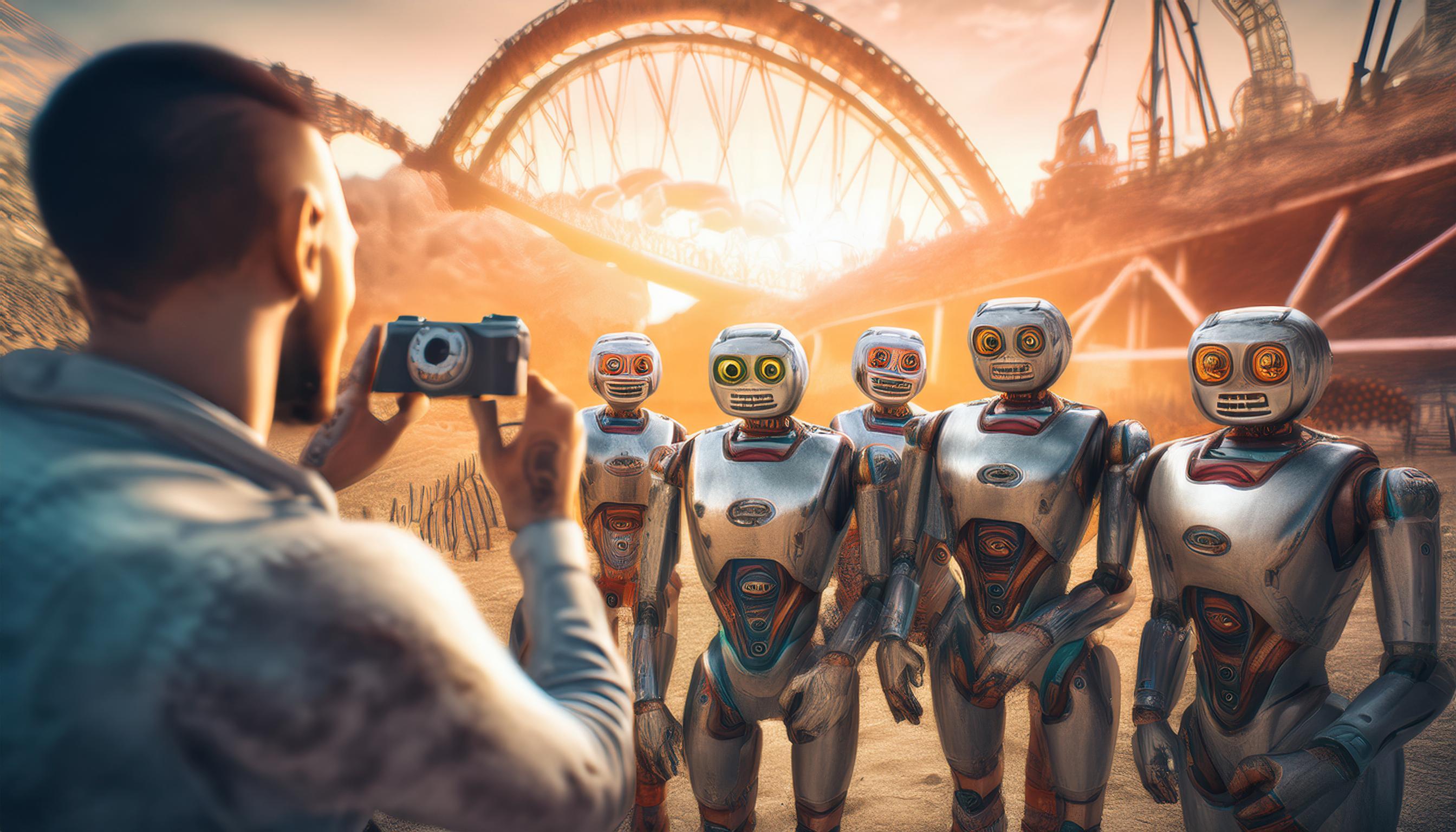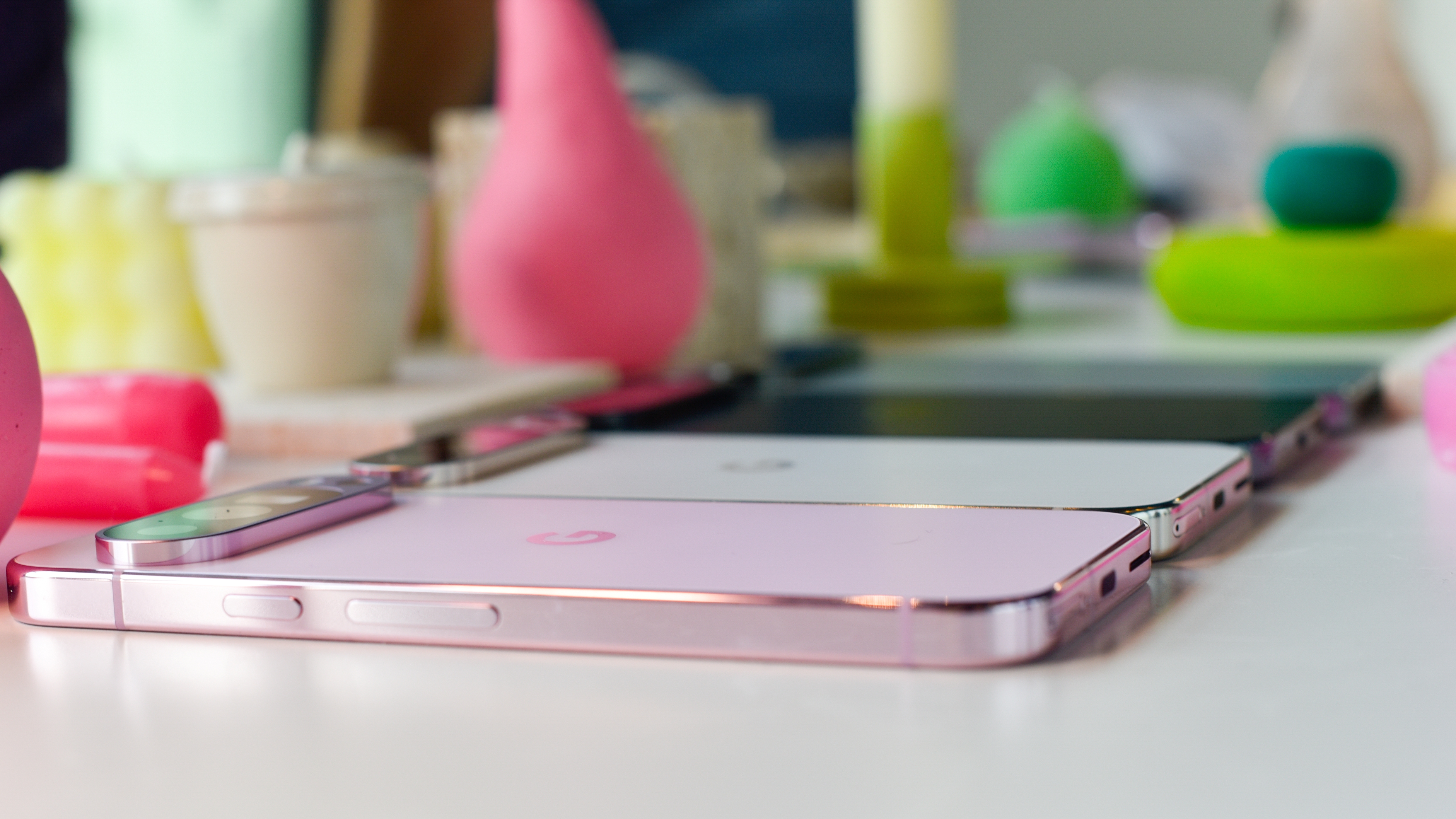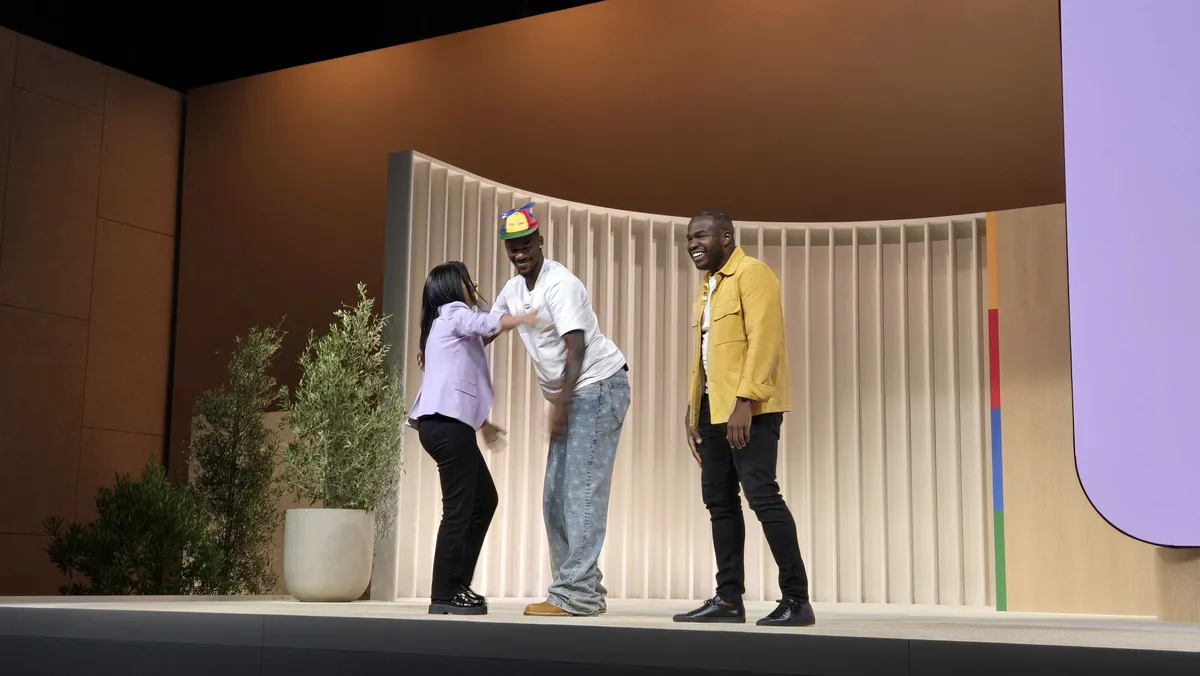I used to think AI was creepy, but these Google AI features are just sad
If a tree falls in the woods and an AI hears it...

Google AI will help you “be more productive” by writing thank-you notes, said Google’s VP of Devices and Services, Rick Osterloh, in an interview with Joanna Stern of the Wall Street Journal ($/£). Osterloh says putting down the pen and switching to digital thank-yous helped him write “10 times more emails than handwritten thank you notes.” In the future, AI will help us write exponentially more thank-you notes in even less time.
Doesn't that make you feel sad? The problem is the impersonal nature of such a feature. Google’s AI can do the things a human can do, but it isn’t the things themselves that are important – it’s doing them.
Like many people, I hate writing thank-you notes. I love receiving gifts, and I love giving thanks, but writing thank-you notes turns an occasion into a tedious follow-up chore. Still, on special occasions, I write the notes, because I have also received thank-you notes, and I know how good it feels.

Receiving a thank-you note is the ideal result of gift-giving, aside from the pleasure of giving, of course. When I receive a handwritten thank-you note, I don’t see words on paper. I see the time it took to write them. I see the effort of finding special stationery, digging stamps out of the junk drawer, and posting the letter in a real-world mailbox.
Writing 100 thank you notes after my wedding was grueling work – thinking of something unique and personal to say to everybody. But those aren’t strangers. They’re friends and cousins and colleagues and loved ones. You know: people, relationships, that sort of human thing.
When I receive a thank-you card after someone else’s wedding and it’s two spare lines of writing that barely acknowledges our connection – proof of life for a gift – I’m still honored and tickled. I know the effort it takes, and I appreciate when it's taken for me.
Being human is an experience, not a result
How many times are we going to have the same conversation, Google? Stop taking the humanity out of my human life. I don’t want an AI that writes thank-you cards, because there is no humanity in it. I don't want an AI that creates fake memories in the form of photographs. I feel sad when humans promote these AI benefits.
I have the same problem with Google’s latest camera trick. The new Add Me camera feature on the Pixel 9 worked very well in my hands-on time, and it solves a real problem. If you're hanging out with a group of people and you want to take a group shot, the photographer is left out of the photo. Add Me can add you to group photos using AI.
As a human, I often ask other humans to take a photo of me and my group, and I have never met another human who refused. Thankfully, Google has solved this problem.
@techradar ♬ Storytelling - Adriel
Once it’s done, you have an Add Me photo. There you are, standing next to the group. Now, imagine how it will feel looking at that photograph in five years, or 10 years, or so long into the future that you can’t remember everybody’s name. I promise, you’ll get there sooner than you’d like.
A real group photo makes you feel a real connection to people. I remember when a group of us took a photo at the Dorney Park amusement park in Pennsylvania. I remember standing in the back, because I’m tall, and putting my arms around the shorter people in front of me. I wish I’d taken off my hat, because you can’t see my face, but I was there.
I remember being there, and that’s important. In fact, that’s the only important thing.
Even if I’ve forgotten the names of the people in the photo, I'll still have a feeling of being there. If I use Google’s Add Me, what will I feel? The time I stood by myself while my friend used a Google Pixel 9 to add me? I won’t remember how it felt standing in the back, with my arms around people, that’s for sure, because I’ll be alone.
Here's a photo of me and a celebrity I didn't meet
Google's own example for Add Me is even worse. You can take a photo of your friend with a celebrity, Google suggests, then add yourself later. On stage at the Made By Google event, Google used Add Me with Miami Heat superstar Jimmy Butler. One presenter stood next to Jimmy Buckets, while the other took a photo. Then, the photographer used Add Me to add himself to the pic.

We all know how this feature will really be used. I'll see Chris Rock crossing the street in Manhattan and I'll take a photo with Add Me. Then, I'll add myself to the photo, making it look like Chris Rock and I were crossing the street together.
Sorry, Chris Rock, I'm only using you as an example because I really DID see you crossing the street one time, and I did NOT take a photo and try to add myself later. That would have been sad. And what would I say when I showed people that photo?
"Here's me and Chris Rock!"
"Oh, did you meet Chris Rock?"
"No, but I took a photo and then added myself later using Google's Add Me!" See?
Sad.
I used to call these AI features creepy, but now I've realized that more than anything they make me feel sad.
After I send 100 thank-you emails, written entirely by Gemini AI, will I feel satisfied? Will I feel like I’ve thanked anybody?
Then, what happens the next time I receive a thank-you… (ugh) a thank-you email? Will it have the same impact? If I think it was written by AI, could it have any impact at all?
An AI can write a note, but it will not be a thank-you. Google’s AI can add you to a group photo, but it will not make you feel like part of the group. These AI tools will not do what their makers claim they will do, because they claim to help us with our human needs, but – and I'm going to say it again – there is no humanity in AI.
You might also like...
Get daily insight, inspiration and deals in your inbox
Sign up for breaking news, reviews, opinion, top tech deals, and more.

Phil Berne is a preeminent voice in consumer electronics reviews, starting more than 20 years ago at eTown.com. Phil has written for Engadget, The Verge, PC Mag, Digital Trends, Slashgear, TechRadar, AndroidCentral, and was Editor-in-Chief of the sadly-defunct infoSync. Phil holds an entirely useful M.A. in Cultural Theory from Carnegie Mellon University. He sang in numerous college a cappella groups.
Phil did a stint at Samsung Mobile, leading reviews for the PR team and writing crisis communications until he left in 2017. He worked at an Apple Store near Boston, MA, at the height of iPod popularity. Phil is certified in Google AI Essentials. He has a High School English teaching license (and years of teaching experience) and is a Red Cross certified Lifeguard. His passion is the democratizing power of mobile technology. Before AI came along he was totally sure the next big thing would be something we wear on our faces.